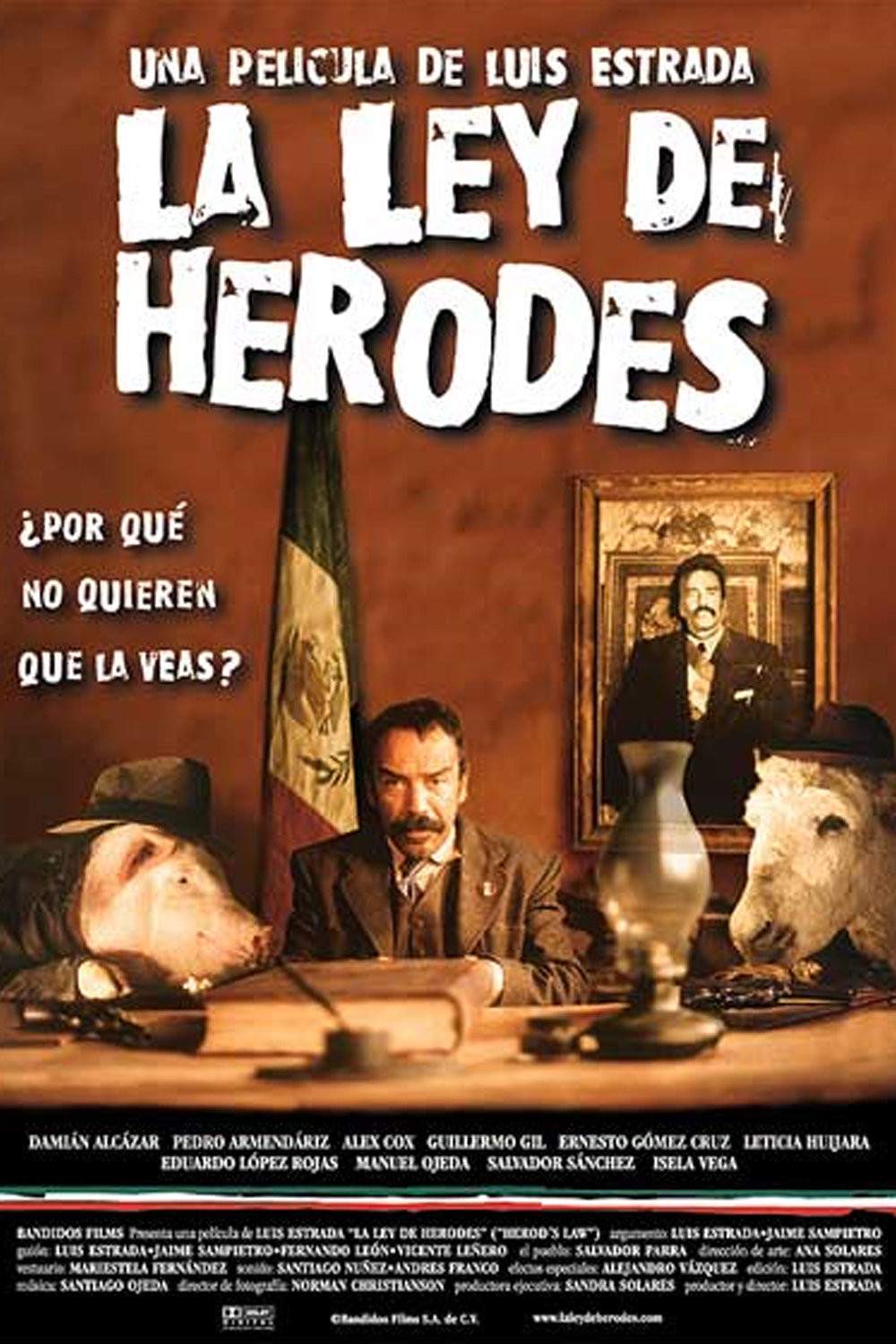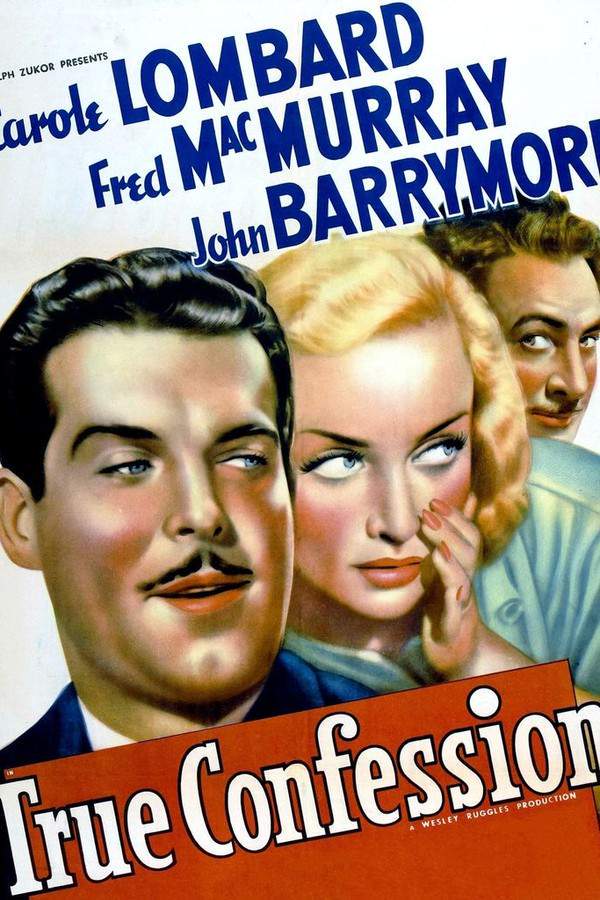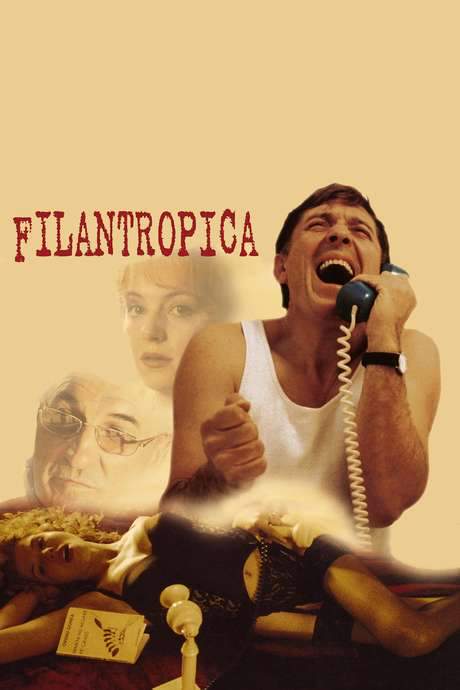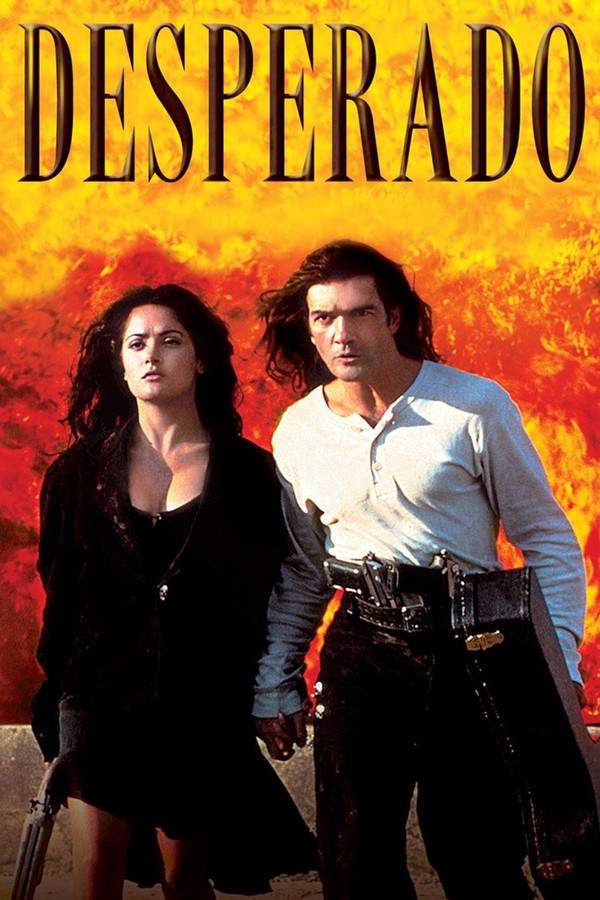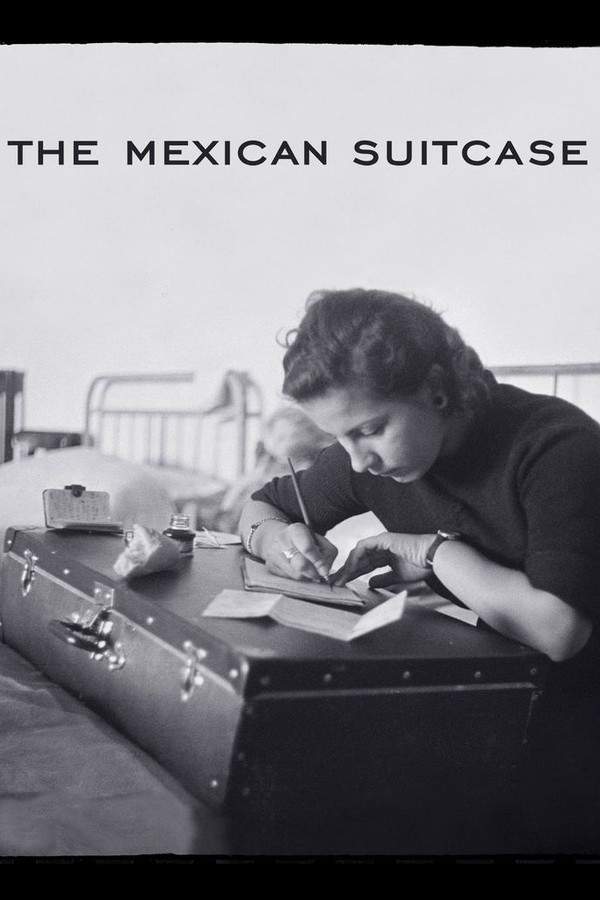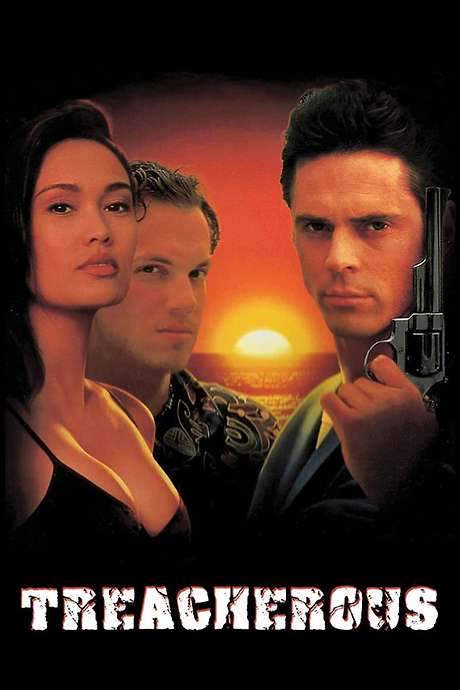
Herod’s Law
Year: 1999
Runtime: 123 mins
Language: Spanish
Director: Luis Estrada
In a remote Mexican town during the 1940s, the last three mayors have been murdered in quick succession. A simple janitor is installed as the new mayor, hoping to bring modernization and peace. However, the entrenched system soon corrupts him; he begins to abuse his authority, surrounding himself with opportunists, hypocrites and criminals.
Warning: spoilers below!
Haven’t seen Herod’s Law yet? This summary contains major spoilers. Bookmark the page, watch the movie, and come back for the full breakdown. If you're ready, scroll on and relive the story!
Herod’s Law (1999) – Full Plot Summary & Ending Explained
Read the complete plot breakdown of Herod’s Law (1999), including all key story events, major twists, and the ending explained in detail. Discover what really happened—and what it all means.
In a tense opening set in a dim office, a man hurriedly stuffs bags of money and vanishes into the night, leaving behind a recently killed man. A furious peasant mob closes in and executes the fleeing figure with a machete, revealing that the dead man was the mayor of San Pedro de los Saguaros. In the wake of this political bloodshed, State Governor Sánchez of the PRI orders his Secretary López to appoint an interim successor who can shore up the party’s image ahead of the upcoming general elections. López delegates the task to his subordinate Ramírez, who quickly proposes Juan Vargas, Damián Alcázar, a well-meaning but dimwitted head of a landfill, as the town’s temporary ruler.
Juan Vargas, Damián Alcázar, and his wife Gloria, Leticia Huijara, arrive to San Pedro with bright hopes. They are confronted by stark poverty and a community where many residents remain illiterate and some still speak little or no Spanish. Despite the initial dismay, Vargas decides to stay and see what his new post might bring, buoyed by a sense of possibility and ambition. He is soon accompanied by his sharp secretary, Pek, Noemí García, as he begins to meet the town’s notables and assess the corruption that previous PRI administrations allegedly siphoned from the coffers.
The town’s landscape is crowded with characters who shape Vargas’s uncertain path: Doña Lupe, the shrewd madam of the local brothel; Pérez, a greedy parish priest; and Doctor Morales, an educated physician aligned with the opposition PAN. Vargas travels to the state capital to request more funding, but when his car breaks down, an American named Robert Smith offers help under a false name and address, leaving Vargas with a revolver and a copy of the Constitution. López initially denies the larger ask for funds but can’t resist arming Vargas with the tools—literally and legally—that could transform his rule.
Back in San Pedro, Vargas digs into the Constitution to uncover ways to leverage fines and taxes as tools of governance—some legitimate, others ethically dubious. He confronts the brothel head-on, only to be met by Doña Lupe’s cleaver. In a tense exchange, Vargas shoots her in the leg and bolts for safety, a reckless decision that seeds his moral unraveling. Doña Lupe reappears later, offering a hefty bribe to look the other way while she operates, and Vargas, hungry for power, pockets the money. From that moment, his discipline erodes as he revels in his new authority.
To solidify his grip, Vargas introduces Smith as an American engineer tasked with bringing electric lighting to the town, promising a 50-50 partnership. He lodges Smith at his own home, deepening his contamination by corrupt influence. Doña Lupe, fed up with Vargas’s increasing demands and the removal of her influence, hires a brutal bouncer who beats Vargas in a confrontation. Vargas responds with a brutal ambush, killing both the bouncer and Doña Lupe and leaving behind his PRI pin at the crime scene, a telltale symbol of his fall from integrity.
The next morning brings fresh trouble: Vargas discovers his pin is missing and chooses to frame Filemón, the town drunk, with the help of a manipulated narrative that implicates Doctor Morales as the mastermind behind the crime. Morales is exiled on spurious charges—partly genuine, partly sensationalized—and Filemón is moved toward jail. During the process, Vargas learns Filemón had found the missing pin at the ravine, and, in a chilling turn, he executes Filemón to silence him for good.
Returning to the town, Vargas finds his wife Gloria entangled with Smith, and the sight of their betrayal drives him into a furious, controlling rage. He chains Gloria at home and spends more and more on punitive taxes and fines, treating the town’s residents as subjects of his new regime. Pek publicly denounces Vargas as “the worst municipal president the town has ever had,” and López arrives in San Pedro in retreat, having survived a failed attempt to kill a political rival and now demanding the money Vargas has generated.
The situation climaxes when Gloria escapes with Smith to the United States, taking Vargas’s money with her. The collapse of Vargas’s moral fortress comes swiftly: he kills López and his henchman Tiburón, and he faces a furious crowd led by Father Pérez and Pek. The townspeople nearly lynch him, but government officials intervene, resettling the hunt for López and rescuing Vargas from mob justice.
In the film’s final turn, Vargas reappears on a national stage as a Federal Deputy, presenting himself as the man who toppled López and delivered justice. Ramírez, who had once helped Vargas, becomes administrator at the landfill where Vargas began his political ascent, while a new mayor arrives to San Pedro de los Saguaros—mirroring the arrival that opened the story and signaling that power, once set in motion, can recreate itself in its own image.
Last Updated: October 09, 2025 at 10:49
Explore Movie Threads
Discover curated groups of movies connected by mood, themes, and story style. Browse collections built around emotion, atmosphere, and narrative focus to easily find films that match what you feel like watching right now.
Movies about political corruption like Herod’s Law
Stories where well-intentioned protagonists are destroyed by the system they join.If you liked the moral descent in Herod’s Law, explore more movies like it. These films feature characters navigating corrupt systems, often becoming part of the problem themselves. They share a dark, cynical tone and a heavy emotional weight, perfect for viewers interested in gritty political dramas.
Narrative Summary
The narrative typically follows an idealistic outsider entering a corrupt system. Through a series of moral compromises, often justified as necessary for survival or progress, the protagonist steadily abandons their principles. The arc is a tragic transformation, where the hero becomes the villain, revealing the systemic nature of the corruption.
Why These Movies?
These films are grouped by their shared focus on the theme of moral decay within systems of power. They create a cohesive experience through a dark tone, steady pacing that allows the corruption to feel inevitable, and a heavy emotional weight that leaves viewers contemplating the ease of ethical compromise.
Dark satirical movies similar to Herod’s Law
Dark comedies that use grim humor to expose systemic absurdity and hypocrisy.Fans of the cynical satire in Herod’s Law will appreciate these similar movies. They use dark comedy to critique power and hypocrisy, blending drama with a caustic, witty tone. These stories are for viewers who enjoy morally complex narratives where the laughter is laced with bitterness.
Narrative Summary
The narrative often unfolds within a confined setting, like a small town or institution, where ridiculous rules and blatant hypocrisy are presented as normal. Characters navigate this absurd world, and the comedy arises from the stark contrast between noble ideals and corrupt realities. The plot serves as a vehicle for social critique.
Why These Movies?
These films are united by their specific blend of tone: a dark, caustic sensibility where humor underscores tragedy. The pacing is often steady, allowing the satire to build, and the emotional impact is heavy despite the comedic elements. They share a cynical mood and a focus on themes like hypocrisy and greed.
Unlock the Full Story of Herod’s Law
Don't stop at just watching — explore Herod’s Law in full detail. From the complete plot summary and scene-by-scene timeline to character breakdowns, thematic analysis, and a deep dive into the ending — every page helps you truly understand what Herod’s Law is all about. Plus, discover what's next after the movie.
Herod’s Law Timeline
Track the full timeline of Herod’s Law with every major event arranged chronologically. Perfect for decoding non-linear storytelling, flashbacks, or parallel narratives with a clear scene-by-scene breakdown.

Characters, Settings & Themes in Herod’s Law
Discover the characters, locations, and core themes that shape Herod’s Law. Get insights into symbolic elements, setting significance, and deeper narrative meaning — ideal for thematic analysis and movie breakdowns.

Herod’s Law Spoiler-Free Summary
Get a quick, spoiler-free overview of Herod’s Law that covers the main plot points and key details without revealing any major twists or spoilers. Perfect for those who want to know what to expect before diving in.

More About Herod’s Law
Visit What's After the Movie to explore more about Herod’s Law: box office results, cast and crew info, production details, post-credit scenes, and external links — all in one place for movie fans and researchers.

Similar Movies to Herod’s Law
Discover movies like Herod’s Law that share similar genres, themes, and storytelling elements. Whether you’re drawn to the atmosphere, character arcs, or plot structure, these curated recommendations will help you explore more films you’ll love.
Explore More About Movie Herod’s Law
Herod’s Law (1999) Scene-by-Scene Movie Timeline
Herod’s Law (1999) Movie Characters, Themes & Settings
Herod’s Law (1999) Spoiler-Free Summary & Key Flow
Movies Like Herod’s Law – Similar Titles You’ll Enjoy
The Crime of Padre Amaro (2002) Story Summary & Characters
Desperado (1995) Detailed Story Recap
The Mexican (2001) Spoiler-Packed Plot Recap
I Murder Seriously (2002) Story Summary & Characters
Day of Wrath (2006) Film Overview & Timeline
Highway Patrolman (1991) Full Summary & Key Details
Doña Herlinda and Her Son (1985) Full Movie Breakdown
Barrios altos (1987) Full Movie Breakdown
Deceitful Appearances (1983) Complete Plot Breakdown
Mexico, Mexico, ra, ra, ra! (1976) Complete Plot Breakdown
Cherry, Harry & Raquel! (1969) Ending Explained & Film Insights
Sex, Shame & Tears (1999) Ending Explained & Film Insights
Treacherous (1993) Full Summary & Key Details
The Law (1959) Story Summary & Characters
Salón México (1996) Full Summary & Key Details



